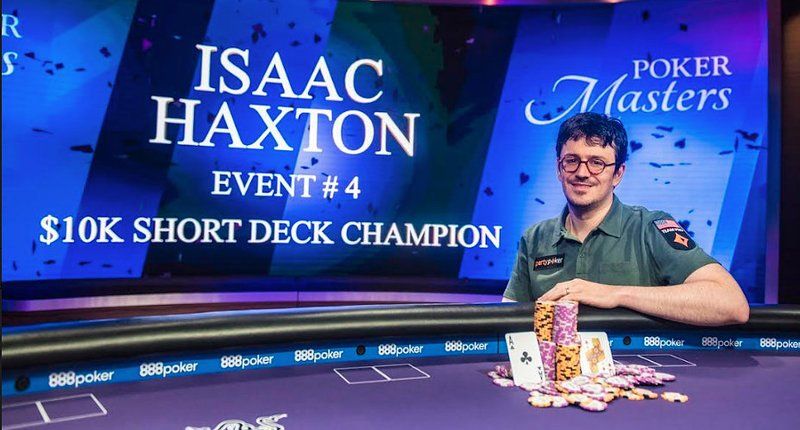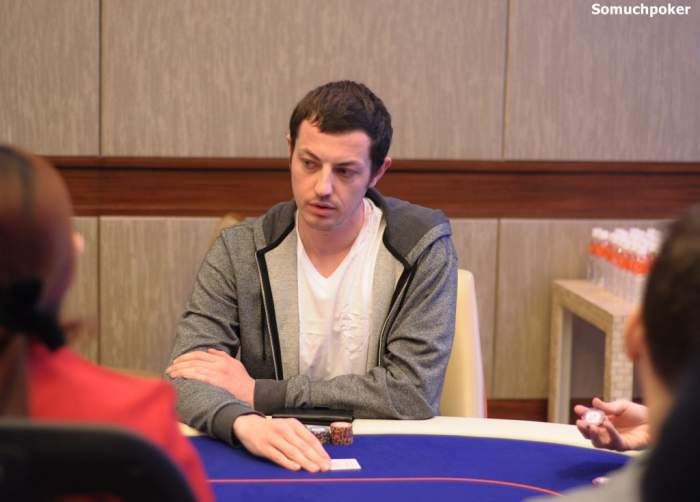The Short-Deck poker craze continues!
Poker is a game of infinite possibilities. But even so, the best loved games can still feel slightly stale after a few million hands. Also, amateurs and pros alike enjoy being involved in bigger pots with more action. With these points in mind, it’s a wonder that short-deck poker hasn’t taken off sooner.
The standard rules for short-deck poker involve taking all the cards from 2 to 5 out of the deck, leaving a deck of 36 cards, all above a 5 in value. This makes it much easier to complete stronger hands, except in the case of flushes, which become more difficult to make. This new variant of Texas Hold’em has been seen with growing frequency in Macau and Asia in general, and has started to take off in other places too, including online.
Poker Masters debut for the format

The only international live poker festival to have adopted the format until this month, has been the Triton Super High Roller Series, but that all changed with the Poker Masters welcoming the game into their schedule this week. The US$10,000 short-deck Hold’em event attracted some big-name players, with Ike Haxton, Andrew Robl and Dominik Nitsche all reaching the final table of a tournament which saw more than its share of wild all-in pots. Despite Nitsche leading going into the final table, Ike Haxton cam through the field from a short stacked starting position to win the event for US$176,000.
PokerStars to adopt short-deck?
PokerStars Taps Six Plus Hold’em as Next New Game: https://t.co/g6UdQWJiV8 pic.twitter.com/i5wcDgXNET
— pokerfuse (@pokerfuse) August 30, 2018
Ipoker Networkhas offered short-deck poker since 2016, but as its popularity has grown in the live arena, so have rumours that a major online poker room might soon offer the game too. Just a few days ago, Winning Poker Network introduced the game, and now rumours from online source ‘Pokerfuse’ suggest that industry giant PokerStars may be about to follow suit. Stars have brought in more than one novelty game recently, and with short-deck being an action-packed game popular in the lucrative Asian market that poker rooms want to tap into, there is every incentive in place for this to happen.
Born in Asian high-stakes games and popularised by Ivey and Dwan

Back in 2016, Somuchpoker was reporting on the biggest cash games in Macau, which revolved around Richard Yong, Winfred Yu and Paul Phua. Back then, ante-only games were favoured due to their habit of generating action and keeping amateurs happy. These games had an ante of HK$20,000 (US$2,560) and the minimum buy-in was set at HK$10,000,000 (US$1.2 million).
With action being the heartbeat of these huge games, the next logical step was to increase the rate at which players picked up strong hands, and the easiest way to accomplish that was to remove the small cards from the deck. Phil Ivey and Tom Dwan became ambassadors and outspoken fans of the game, helping its popularity to gain a global following. Despite not usually granting many interviews, the two stars were happy to speak out about the game and what it made it special.
Interestingly, when Phil Ivey returned to the spotlight after a prolonged absence, his first big result came in a short-deck poker event at the Triton series, where he won US$604,977 for 1st place in the HK$250,000 (US$30,720) Triton short-deck event.
Conclusion: what should player be doing if short-deck interests them?
The answer is simple. Study hard and discover all the nuances of what sets this game apart from regular Hold’em. Some of the normal Hold’em mathematic calculations that are second nature to you might have to be recalculated, with some hands being easier to complete, and ranges becoming significantly stronger than a usual full-deck Hold’em game.
Shortdeck is fun, no solvers but your brain so far.
Officeday feels pretty good actually😎 pic.twitter.com/hHhW2r9xE2— Steffen Sontheimer (@RunGo0seRun) September 4, 2018
Article by Craig Bradshaw

















